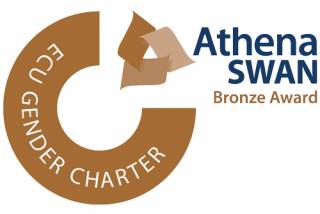University College London's department of Greek & Latin is to host Desire, Decadence and Death: Experiencing the Ancient World in Silent Cinema for inaugural Humanities Festival
Researchers and public explore what it means to be human
UCL is hosting an
event to participate in Being Human,
the UK's first national festival of the humanities. The event involves a
screening of rarely seen silent films set in ancient Greece and Rome that
display extremes of human experience (with piano accompaniment, an introduction
and discussion) made possible by a grant from the festival organisers, the
School of Advanced Study, University of London, supported by the Arts and Humanities
Research Council and the British Academy.
Following
a successful application, UCL has been awarded funding
to hold the event during Being Human
festival week, 15 - 23 November 2014. The screening of ancient world films will champion the excellence of humanities research
being undertaken in London and help to
demonstrate its vitality and relevance today. Selected from over 100
applications, the grant will help the university
bring together researchers and the local public to engage with their own interpretation
of the humanities.
The film screening (to be
held on 15th November 2014 at Birkbeck Cinema from 2 to 6pm) will be part of a national programme of activities
which aim to inform, extend and ignite contemporary thinking and imagination
around the humanities. Find out
more about the film screening from Maria Wyke (Dept. of Greek & Latin, UCL)
at m.wyke@ucl.ac.uk
Currently
in its first year, Being Human is led
by the School of Advanced Study in participation with the Arts and Humanities
Research Council and the British Academy with the participation of arts and
cultural organisations and universities across the UK. The festival programme
will focus on activities that make humanities research accessible to the
general public and demonstrate the role of the humanities in the cultural,
intellectual, political and social life of the UK. Thirty-six grants have been
awarded to universities and arts and cultural organisations across the UK to
participate in the nine days of festival events taking place across the UK,
from Truro to Orkney, Swansea to Belfast and Norwich to Liverpool. Find out
more about the festival at www.beinghumanfestival.org and follow the
festival on Twitter at @BeingHumanFest
If you are a
journalist and require further information on Being Human, please contact: Rebecca Law at Bray
Leino, +44 (0)117 971 1173 / rlaw@brayleino.co.uk For all other festival
enquiries, please contact: Annett Seifert, Communications and External
Relations, School of Advanced Study, University of London, +44 (0)20 7862 8696
/ annett.seifert@sas.ac.uk
1. Being Human: A festival of the humanities 15-23 November 2014 What does it mean to be human? How do we understand ourselves, our relationship to others and our place in nature? For centuries the humanities have addressed these questions. Artists, writers, philosophers, theologians and historians have considered who we are, how we live and what we value most. But are these long-standing questions changing in 2014? We are more connected than ever, yet we spend more time with smart phones and computers than face to face. The world is becoming smaller, yet the digital information we can access and store, even about ourselves, is vast and growing. Developments in science and technology are moving fast, challenging our understanding of the self and society. What sense can we make of these changes and what challenges do we face? We need the humanities more than ever to help us address these issues and provide the means to question, interpret and explain the human predicament.
The festival is held as part of the School of Advanced
Study's 20th anniversary celebrations and draws on the success
of the 2013 King's College Festival of the Humanities. Being Human will be the
UK's first national festival of the humanities. Led by the School of Advanced
Study, University of London, in partnership with the Arts and Humanities
Research Council and the British Academy, universities, arts and cultural
organisations across the UK, it will demonstrate the value, vitality and
relevance of the humanities in 2014. www.beinghumanfestival.org
2. Experiencing the Ancient World in Silent Cinema 15 November 2014,
2 to 6pm Birkbeck cinema This screening is
part of a research project that aims to produce the first large-scale study of
representations of the ancient world in silent cinema and to establish new
understandings both of cinema's fascination with the past and of the appeal of
antiquity in modern times.
Scattered across the UK, Europe and the United States, in the vaults of film archives there survives a large number of entertaining, provoking, and often quite beautiful silent films that are set in ancient Greece and Rome. Through their enticing use of gesticulation and look, exotic sets and costumes, colour, music and movement, these films draw their audiences into an ancient world where life is lived intensely, differently or to an extreme. The event will consist of the screening of a selection of these rarely seen early films. The programme will demonstrate how antiquity films of the silent era exhibit humanity at its most extreme - extremes of emotion (desire and hatred), of action (murder and martyrdom), of gender ('unnaturally' masculine or delicately feminine women, effeminate or hypermasculine men), of social organisation (tyranny and servitude), and of transformation or interaction between animal, human, and the divine. The screening's introduction will explore the technical, ideological and aesthetic mechanisms by which 'being human' is performed on screen, and of antiquity's function in early cinema as a world of extremes. The experience of viewing will be substantially enriched by the music that will accompany it. Afterwards, there will be time for audience questions, comment and discussion. Please contact Maria Wyke, University College London, for further details. (m.wyke@ucl.ac.uk)
 Close
Close



